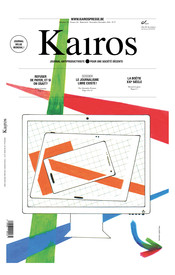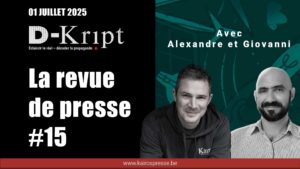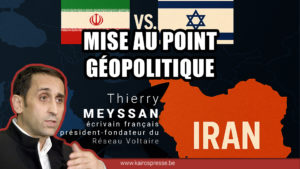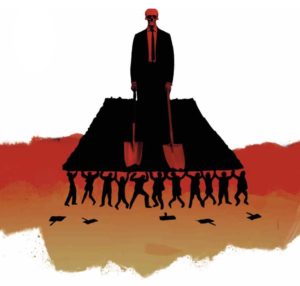«L’emprise des élites sur les médias et la marginalisation des dissidents découlent si naturellement du fonctionnement même de ces filtres(1) que les gens de médias, qui travaillent bien souvent avec intégrité et bonne foi, peuvent se convaincre qu’ils choisissent et interprètent « objectivement » les informations sur la base de valeurs strictement professionnelles. Ils sont effectivement souvent objectifs, mais dans les limites que leur impose le fonctionnement de ces filtres ».
Noam Chomsky et Edward Herman, La fabrication du Consentement(2).
Suite à la carte blanche « Le journalisme citoyen n’existe pas »(3), nous avions donc proposé avec d’autres médias libres, une réponse au quotidien (voir p.10–11). Nous pensions avoir le droit de dénoncer ce qui était pour nous des raccourcis et reflétait les positions de l’intelligentsia, purs points de vue conformistes qui éludaient la réalité du journalisme libre et sa véritable raison d’être.
LES « FACTEURS » DU REFUS
Le courrier a été envoyé à la rédactrice du service «débats», le 6 octobre. Le 7, elle nous répondait:
«Bonjour Monsieur,
Merci pour votre proposition. Compte tenu de divers facteurs (dont ce qui a déjà été dit dans nos colonnes et ce qui est en préparation, pour notre rubrique et le reste du journal), nous ne pourrons pas publier votre texte.
Excellente fin de semaine à vous,
Monique Baus »
La réponse arrive, celle qu’on attendait, mais que d’une manière paradoxale on n’attendait pas (ce qui doit aussi nous questionner sur le sens de nos interventions, sur ce que nous sommes et voulons vraiment(4)). Pas moyen à notre tour de nous exprimer, de répondre là où André Linard, ancien directeur de la CDJ, dispose de l’espace pour pourfendre en quelques lignes la raison de nos luttes. Notre droit de réponse, par un collectif de médias libres (Zin TV, Kairos, Krasniy, Radio Panik…) est, sans «explications», refusé. Bam! La sentence tombe. Pas de grands étonnements donc, bien que toujours une forme de sentiment d’injustice se mélangeant à une forme de surprise un peu feinte, un peu vraie… C’est en effet toujours tellement grand, fort, violent.
Mais tout cela est aussi riche d’enseignement, démontrant à quel point les médias façonnent notre perception du monde et que, pour changer ce monde, il faudra abattre ce journalisme qui formate les esprits.
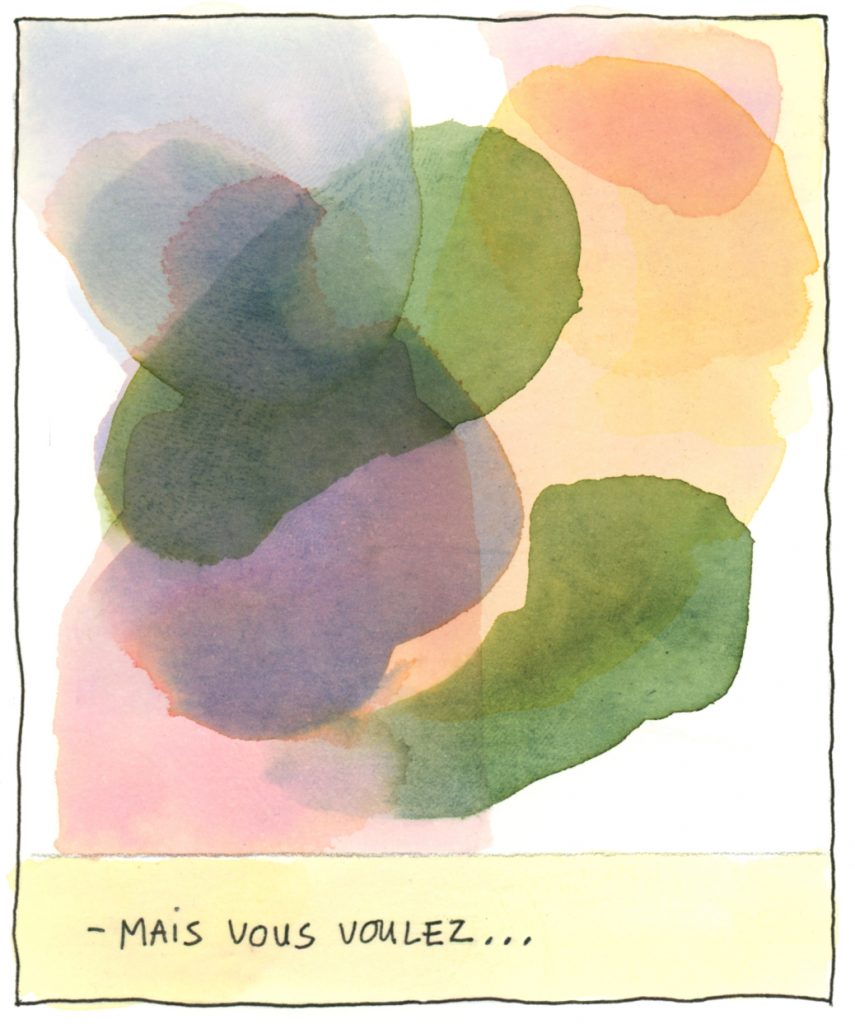
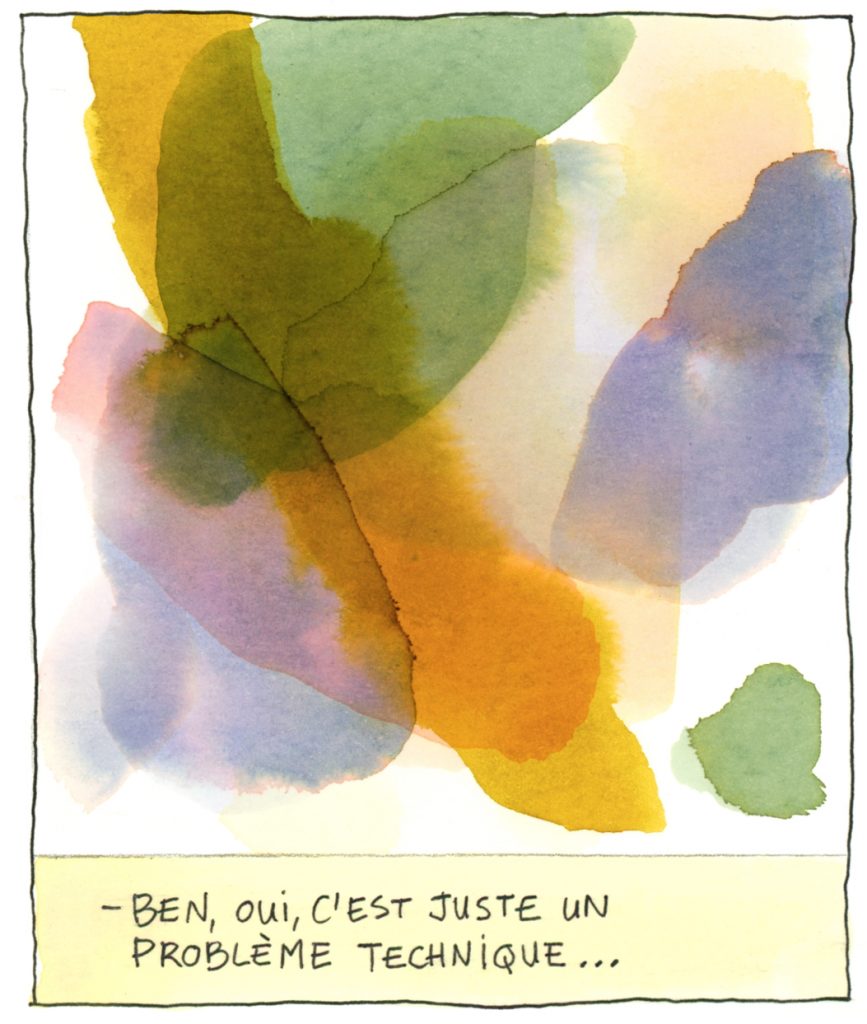
L’APPEL À LA LIBRE, PAS SI LIBRE
Je décide d’appeler Madame Baus, responsable du service « débats » à La Libre.
« J’ai un certain nombre de cases à remplir avec un certain nombre de textes »
Responsable « Service débats » de La Libre.
- Kairos Allo, bonjour, Madame Baus?
- Madame Baus - Oui.
- Alexandre Penasse, rédacteur en chef du journal Kairos. Je viens d’apprendre le refus de la publication de la carte blanche et j’aurais aimé, si c’est possible, avoir une explication ?
- Eh bien, l’explication était dans le mail : il y a un choix à faire, j’ai moins de place que de textes proposés et dans le choix… voilà!
- Mais on peut vous proposer quelque chose de plus court pour la semaine prochaine.
- Non, c’est pas une question de longueur, c’est vraiment une question de choix. Si vous voulez revenir la semaine prochaine, mais je ne vous garantis pas que…
- Attendez, une question de… je comprends pas, il est…
- De longueur…
- Il est trop long?
- Non pas du t… non.
- Je ne comprends pas alors.
- Non, c’est pas une question de longueur, c’est une question de choix, euh… j’ai, j’ai un certain nombre de cases à remplir avec un certain nombre de textes: j’ai plus de textes que de cases, et voilà y’a certains textes qui ne passent pas, et voilà celui-là on a décidé que…
- Ça n’a rien à voir avec le fond de l’article, je suis sûr…
- Sans doute…
- «Sans doute» quoi, que ça n’a rien à voir?
- Oui.
- Le texte ne vous dérange pas du tout ?
- Mais vous voulez… j’entends bien ce que vous dites, mais ça ne sert à rien de faire des insinuations comme ça par téléphone. C’est pas ça qui fera passer le texte, vous comprenez.
- Ce ne sont pas des insinuations, mais je me dis que c’est quand même un peu ça le problème. De toute façon on va diffuser tout azimut votre refus, c’est évident.
« Cette concentration des médias entre les mains de ceux qui déjà concentrent les richesses est-elle aussi dépourvue de conséquences pour l’information qu’on le dit ?»
S. Halimi, p.56
- Mais ce n’est pas un refus! C’est qu’on ne peut pas tout publier dans un journal où il y a… on reçoit quarante textes…
- Vous me dites alors « écoutez, ça ne va pas pour vendredi, lundi ou mardi, mais on vous le publiera un autre jour, ça reste d’actualité… », mais ne me dites pas que…
- Non, non, ah non, non, non, ça ne reste pas d’actualité puisque c’est une réaction à quelque chose qui a été écrit la semaine précédente, et donc non
ça ne reste pas d’actualité (sic). Ça n’est pas vrai.
- Mais le sujet est quand même… la carte blanche de Linard, elle est sur votre site, la personne peut très bien retrouver ça et la plupart des gens qui vont voir notre réponse iront revoir la carte blanche d’origine. Je ne comprends pas.
- Ben, écoutez, moi voilà, je n’ai pas autre chose à vous dire. Moi je m’occupe des pages papiers, donc je ne m’occupe pas du site. Ce qui est publié sur le site ou pas, ça n’est pas de mon ressort à moi. Et donc je vous dis, j’ai dix emplacements par semaine et je ne peux pas publier tout ce que je reçois. Il faut faire des choix. Il faut faire des choix chaque semaine et il faut épurer au fur et à mesure, je peux pas laisser gonfler la pile de textes que j’ai ici sur mon bureau pour en avoir après 150 en attente…
- C’est vous qui décidez toute seule ?
- Non, pas toute seule.
- Donc c’est juste un problème technique ?
- Allez (elle souffle), d’accord. Ben, oui, c’est juste un problème technique…
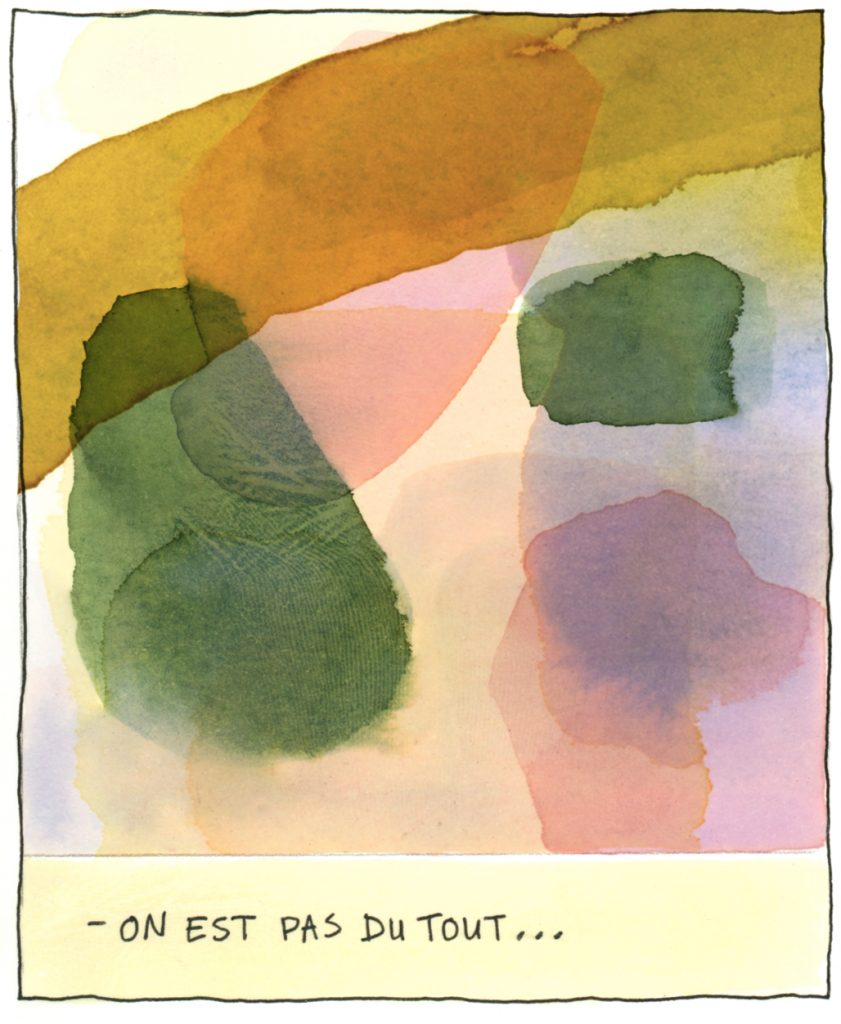
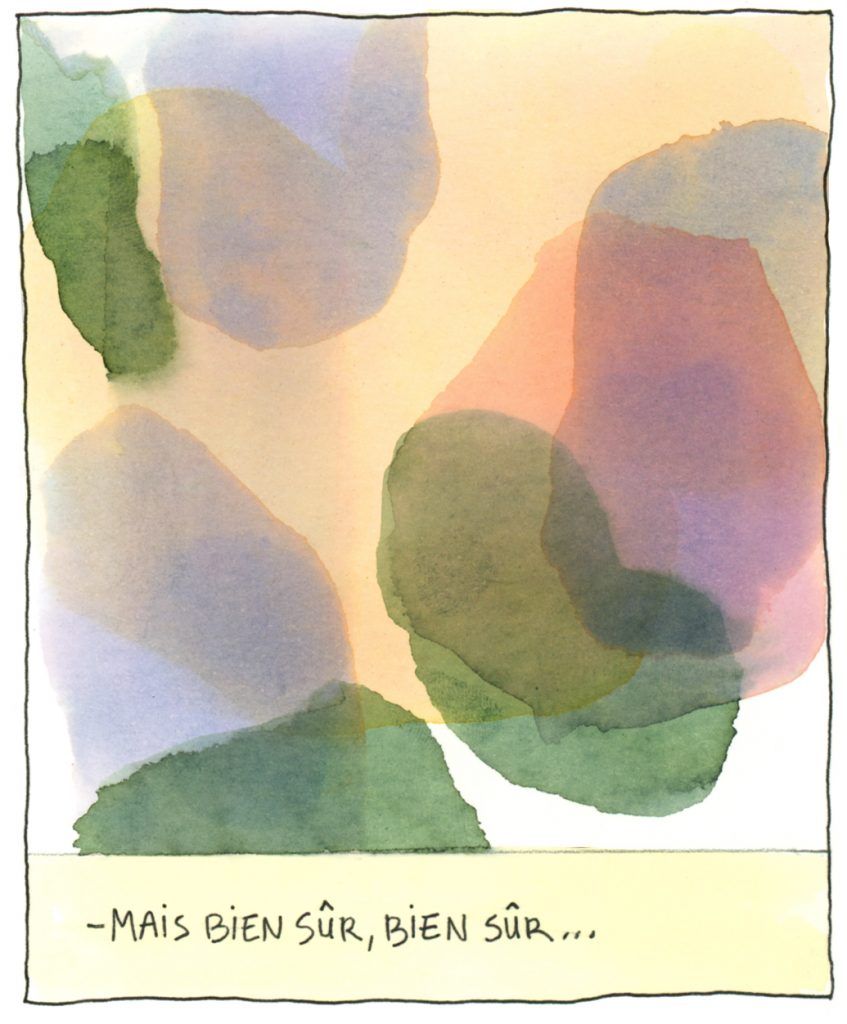
« C’EST LA VRAIE VIE ÇA »
Suite à cela, nous avons appelé Jean-François Dumont(5), secrétaire général adjoint de l’Association des Journalistes Professionnels (AJP), qui a été journaliste de presse écrite durant 26 ans, rédacteur en chef adjoint de l’hebdomadaire Le Vif/L’Express, a enseigné le journalisme durant 20 ans à l’UCL et enseigne à l’IHECS (pour le master en Education aux médias) et à l’Université du Burundi. Il siège au Conseil de déontologie journalistique (CDJ) ainsi qu’au Conseil supérieur de l’Éducation aux médias (CSEM). Le personnage est donc bien ancré dans le milieu.
A l’origine, on l’appelle pour le fameux Gala de l’AJP, celui où les pontes de la profession se retrouvent(6). On veut aller voir ce qui s’y passe, ce qui s’y dit, quels sont les copains de ceux censés protéger la profession de journalistes, et qui rencontrent ces derniers et les étudiants lors de leur « tournée en Wallonie et à Bruxelles », dans les locaux d’IPM, Belga, Rossel, RTL-TVI(7)…
La discussion avec Jean-François Dumont débute sur l’importance pour nous, chez Kairos, du journalisme libre, citoyen et de la difficulté, si pas l’impossibilité, d’en vivre. Les dissonances, contradictions, sont riches d’intérêt ; la manière également dont il se représente et présente, à l’exemple d’André Linard, le journalisme alternatif : sorte d’organisation à la marge des médias mainstream qui fournirait à la presse de masse quelques contenus et l’influencerait parfois un peu par une petite piqûre de rappel mais pas trop profonde, douce et toujours en superficie, sans jamais, oh non jamais, remettre en question l’industrie médiatique et les grosses fortunes qui les possèdent: «c’est la vraie vie ça. Même si on peut le déplorer»…
Jean-François Dumont : (…) Il y a des choses qui s’assouplissent un tout petit peu, mais c’est vrai qu’on en n’est pas encore à dire qu’un bénévole peut être reconnu comme un professionnel, c’est aussi un sacré message que l’on enverrait aux employeurs en leur disant « Vous savez, c’est pas grave, si vous payez pas vos gens, ils seront quand même reconnus chez nous comme journalistes. » (…) Nous, on ne veut pas non plus habituer ou passer le message que le journalisme est une activité qui ne se paie pas nécessairement. C’est une profession, c’est un métier, ça se rémunère.
- Kairos: oui, mais justement, quand on fait une presse alternative, libre, dissidente, la réalité est qu’on ne sait quasiment pas se payer (…)
- On ne veut pas dévaloriser, démonétiser la valeur d’une prestation professionnelle (…)
- Encore une chose : quel est le pire, faire du travail bénévole sans toucher de l’argent de la publicité ou être payé par la publicité ?
- Oulaaa… qu’est-ce que ça sous-entend ? Vous voulez dire que si l’entreprise de presse est payée par la publicité, les journalistes sont des vendus aux annonceurs, c’est ça que vous suggérez ? On va faire un colloque un jour là-dessus si vous voulez (rire)
- On fait un colloque quand vous voulez… Accardo, Chomsky, Halimi ont écrit beaucoup de choses là-dessus déjà.
- Oui, je sais, mais on va pas rester dans le fantasme non plus à ce niveau-là ; même s’il y a des liens parfois sulfureux entre l’information et la publicité, on est pas du tout… je ne sais pas si vous avez déjà travaillé dans une vraie rédaction ?
- Non, mais on peut vous envoyer des stagiaires dans des vraies rédactions. Je travaille dans une vraie rédaction, c’est celle de notre journal.
- Je dis « vraie rédaction » d’une presse qui vit notamment de la publicité. Moi j’ai 26 ans de présence dans ces rédactions-là, je ne savais jamais quel était l’annonceur qui était dans mes pages le lendemain.
Et personne de mes collègues ne le savait. Et je n’avais pas de consignes pour dire « On ne dit pas du mal d’untel ou d’untel ». Mais y’a des exceptions, que je suis prêt à reconnaître et que j’ai vécues aussi.
« Ce sont les préférences des publicitaires qui déterminent la prospérité, voire la survie même d’un média ».
Chomsky et Edward, p.47
- En tous cas, on remarque qu’il y a des choses qui ne sont pas traitées dans la presse, mais bon…
- Mais bien sûr, bien sûr.
- Et que Kairos n’est pas trop apprécié par la presse de masse qui ne nous relaie pas ; on ne cherche pas ça, puisque justement on existe parce qu’ils ne font pas leur boulot, mais on nous évite quand même grandement.
- D’un autre côté, pour des gens de communication, vous êtes d’une discrétion surprenante. Moi, j’ai fait la connaissance de Kairos l’année passée au salon de Namur.
- On n’est pas d’une discrétion surprenante, on n’a pas les réseaux des autres, c’est tout.
- Est-ce que vous avez seulement envoyé un exemplaire de Kairos aux rédactions traditionnelles, pour qu’on vous lise, pour qu’on vous reprenne, pour qu’on parle de vous?
- D’envoyer un Kairos à La Libre ou au Soir ou à la DH, c’est ça que vous voulez dire ? *
- Oui, bien sûr, aux gens qui s’occupent des médias.
- Eh bien, je fais le pari avec vous qu’on l’envoie et qu’il n’y aura aucune réponse.
- Pas tout de suite, mais bien sûr quand Bernard Hennebert ou d’autres faisaient de l’entrisme dans les rédactions, ben voilà bien quelqu’un qui est arrivé jusqu’à avoir des pages complètes sur lui. Il ne faut pas se plaindre de ne jamais être cité si vous ne sortez jamais de votre tanière.
« Comment le professionnel de l’information a‑t-il imaginé qu’un industriel allait acheter un moyen d’influence tout en s’interdisant de peser sur son orientation ? ».
Serge Halimi, p. 69
- Ah mais non, je ne me plains pas de ne pas être cité, je vous dis que quand je fais un dossier sur les liens entre les médias de masse et les plus grandes fortunes belges(8), je ne crois pas que Le Soir et Monsieur Marchant et Madame Delvaux se disent : « Tiens, on va relayer ». Ne soyons pas naïfs, franchement, il faut arrêter.
- Non, effectivement, surtout si vous citez en plus des gens de la famille Hurbain et compagnie.
« Sous la double pression de la concentration capitaliste et d’une concurrence commercial favorisant le conformisme et la bêtise, le journalisme est devenu presque partout : creux et révérencieux ».
S. Halimi, p. 29
— Ah, la famille Hurbain, quantième fortune belge?
- On sait quand même comment aussi les médias fonctionnent, évidemment qu’il y a une espèce de…
quand j’étais à la Libre Belgique, c’est pas en lisant Le Soir que j’apprenais ce qu’il se passait chez eux et c’est pas en lisant Le Soir que j’apprenais ce qu’il se passait chez IPM. Et ça, c’est la vraie vie ça, même si on peut le déplorer. Et c’est pour ça que c’est intéressant qu’il y ait des médias alternatifs. Mais en même temps, il y a des médias alternatifs qui font un boulot qui finit par s’infiltrer, par donner des sujets et de l’info à des médias non-alternatifs.
« Les sondages indiquent régulièrement que le public – bien qu’il écoute et regarde ce qui lui est proposé – souhaiterait davantage de nouvelles,
Chomsky et Edwards, p.96
de documentaires et une information différente, moins de sexe et de violence et un autre genre de divertissements. Il semble peu probable qu’il serait réellement indifférent aux citoyens de savoir pourquoi leurs revenus stagnent, voire déclinent, alors qu’ils travaillent de plus en plus dur ; pourquoi les soins médicaux auxquels ils ont accès sont aussi coûteux que médiocres ; ou encore négligent ce qui peut être perpétré en leur nom un peu partout dans le monde. S’ils sont si peu au courant de tels sujets, le modèle de propagande explique pourquoi : ceux qui exercent leur souveraineté sur les médias ont décidé de ne pas aborder ce type de questions».
Y‑A-T-IL QUELQUE CHOSE À FAIRE POUR EUX ?
C’est évident que les chiens de garde de l’ordre dominant, ces journalistes bien-pensants qui s’évertuent à tenter de nous faire croire qu’ils sont libres, alors qu’ils le sont dans le cadre qu’on leur donne et qu’ils acceptent de se donner, celui de la «vraie vie», sentent que le vent commence à tourner. De plus en plus de citoyens se détournent de médias soumis au grand capital, qui les considèrent d’abord comme des consommateurs, secondairement comme des lecteurs dont le devoir serait de leur parler de ce qui est important.
Ils disent offrir une agora. Oui, mais avec droit d’entrée !
* ACTION DU MOIS: Contacter La Libre, La Dernière Heure, Le Soir, envoyez-leur votre Kairos, l’adresse du site… vous serez surpris de voir se confirmer ce que nous disons ici…
- Chomsky et Edward évoquent ici cinq principaux filtres : taille, actionnariat, fortune du propriétaire et orientation lucrative ; poids de la publicité ; poids des sources gouvernementale ou économiques et des « experts » financés et adoubés par ces sources primaires et agents des pouvoirs ; moyens de contre-feux permettant de discipliner les médias ; l’« anticommunisme » comme religion nationale et mécanisme de contrôle. Ce dernier filtre a évolué actuellement vers la lutte contre l’Islam et la guerre au terrorisme.
- Éditions Agone, 1988/2008, p. 26.
- Voir l’article « Expression à sens unique », dans ce dossier.
- C’est-à-dire qu’au-delà de l’attitude didactique qui vise à montrer qui ils sont, devons-nous encore chercher à les « coincer » ? Cela a‑t-il du sens, cela ne repose-t-il pas sur l’illusion qu’ils sont capables de changer (voir p. 17–18,« Le conflit mental indépassable des journalistes »).
- Que nous avions déjà interviewé dans l’émission Micro Ouvert, au salon des médias alternatifs, l’année précédente. A écouter ici :https://archive.org/details/MicroOuvert-MdiasAlternatifs1- .
- Voir « Daniel Blake au gala de l’AJP », http://us5.campaign-archive2.com/?u=4002f970f42fa3c587b2884bd&id=f4ebb3342a
- http://www.ajp.be/lajp-a-votre-rencontre-chez-vous
- Voir « Seriez-vous Libre® ce Soir® ? Ou comment les médias- industries détruisent la pensée » (Kairos 23, ou ici : http://www.kairospresse.be/article/seriez-vous-librer-ce-soirr)


